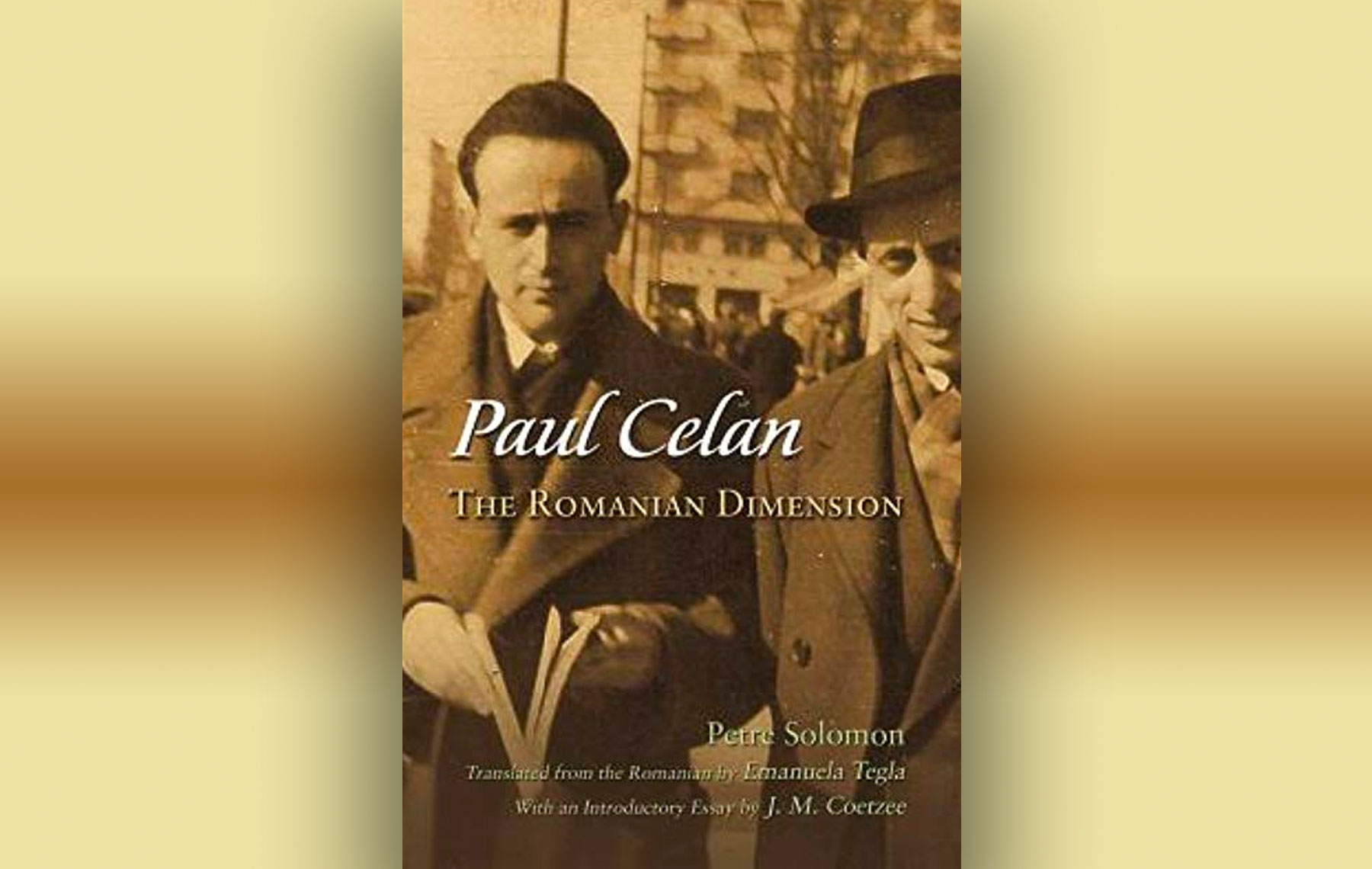
“After Auschwitz,” warned Theodor Adorno, “to write poetry is a barbarity.” And yet, ironically, some of the most iconic words ever written about the Holocaust are embodied in a poem — the dark, deeply moving and often-quoted “Todesfuge” (“Death Fugue”), which was composed during World War II by the celebrated Jewish Romanian writer known as Paul Celan. It was his first published poem. It reads, in part:
Black milk of daybreak we drink you
at night
we drink you at noon death is a master
from Germany
we drink you at sundown and in the
morning we drink and we drink you
death is a master from Germany his
eyes are blue
he strikes you with leaden bullets his
aim is true
Celan’s life and work are the focus of “Paul Celan: The Romanian Dimension” by the late Petre Solomon, translated by Emanuela Tegla. The literary provenance of “Paul Celan” is fascinating in itself. The book, which was written and first published in the Romanian language in 1987, is now appearing for the first time in an English translation as part of the Judaic Traditions in Literature, Music and Art series from Syracuse University Press. The author, who died in 1991, was a poet and translator whose translations include works by Shakespeare, Byron, Balzac and Melville. The translator of Solomon’s book is herself the author of books about Salman Rushdie and J.M. Coetzee, and it is Coetzee who contributes an introductory essay to the book.
“Paul Celan” was the nom de plume of Paul Antschel, who was born in 1920 in Bukovina, a region in the Austro-Hungarian Empire that was attached to Romania after World War I. He was a German speaker, although his education included instruction in Romanian and Hebrew. His parents were victims of the Holocaust, and he survived only because he was sent to a slave-labor camp. After the war, he taught German literature in Paris, and most of his own poetry was written in that language. His gift for wordplay is evidenced in his choice of Celan as a last name — it’s an anagram based on his real surname as it is spelled in Romanian.
Much has been written about the life and work of Paul Celan, including the benchmark biographical study by John Felstiner, “Paul Celan: Poet, Survivor, Jew.” But Petre Solomon offers an unaccustomed point of view — he seeks to put Celan into a frame of reference that includes the poet’s Romanian and Jewish background. “Celan’s drama is not foreign to this essential fact of his biography,” writes Solomon. Celan chose to write “in the language of his parents’ executioners,” as Solomon concedes, but he also points out that “some of Celan’s poems may appear to be doing violence to the German language.” Surely, what Celan witnessed and experienced in Romania during the Holocaust “hurt him into poetry,” to borrow a phrase from Auden.
But Solomon also was moved to “reveal what I know about my friend and to make public some of the texts he entrusted to me,” and one of his motives was to move beyond “Death Fugue” and other poems written in German by calling attention to the writings that “testify to the poet’s mastery of a language he acquired in all its intimate nuances — the Romanian language.” The omission of his place of origin from Celan’s biography is a mistake that Solomon seeks to correct.
“Surely, what Paul Celan witnessed and experienced in Romania during the Holocaust “hurt him into poetry,” to borrow a phrase from Auden.”
“Paul Celan needs not a hagiography but a better knowledge of all the elements that compose his spiritual biography, so complex and so closely intertwined as it is with his work,” Solomon explains. “At least four cities — Czernowitz, Bucharest, Vienna, and Paris — have good reason to claim him.”
By way of example, Solomon describes how he worked with Celan in 1947 on a Romanian version of “Todesfugue” under the title “Todestango” — that is, “Tango of Death” rather than “Death Fugue.” Solomon writes: “It was like a general rehearsal before a premiere that, of course, Celan had anticipated for a European audience, German in particular, because the ‘Todesfugue’ was a poem written in German, meant to awaken and unsettle the conscience of the German people, who were guilty of the crimes evoked by him.”
Solomon does not overlook Celan’s Jewish identity, but he wants us to understand what Jewishness actually meant to him. “Celan spent his childhood in a family atmosphere that was imbued with Judaism, but the increasingly acute conflict between him and his authoritarian father made him reject the ‘old man’s’ rather rudimentary Zionism from an early age,” Solomon writes. “For him, being Jewish meant acknowledging the evidence of a physical, rather than metaphysical, order, although later, after the bitter experience accumulated in the West, a certain metaphysical, even mystical dimension would become manifest in his attitude toward Judaism.”
The use and misuse of “Death Fugue,” in connection with both the Holocaust and the life story of Paul Celan, is one of the leitmotifs of “Paul Celan.” In that sense, Solomon’s posthumous book, which is an indispensable and highly illuminating companion text to Celan’s enduringly famous poem, inevitably calls Adorno’s caution to mind. Yet, according to Coetzee’s introduction, “Adorno took back his words, grudgingly, in 1966, perhaps as a concession to ‘Death Fugue.’ ”
Solomon’s aspiration, so fully and richly achieved here, is to widen and sharpen the lens through which we see Paul Celan’s enduring masterpiece.
Jonathan Kirsch, author and publishing attorney, is the book editor of the Jewish Journal.























 More news and opinions than at a Shabbat dinner, right in your inbox.
More news and opinions than at a Shabbat dinner, right in your inbox.